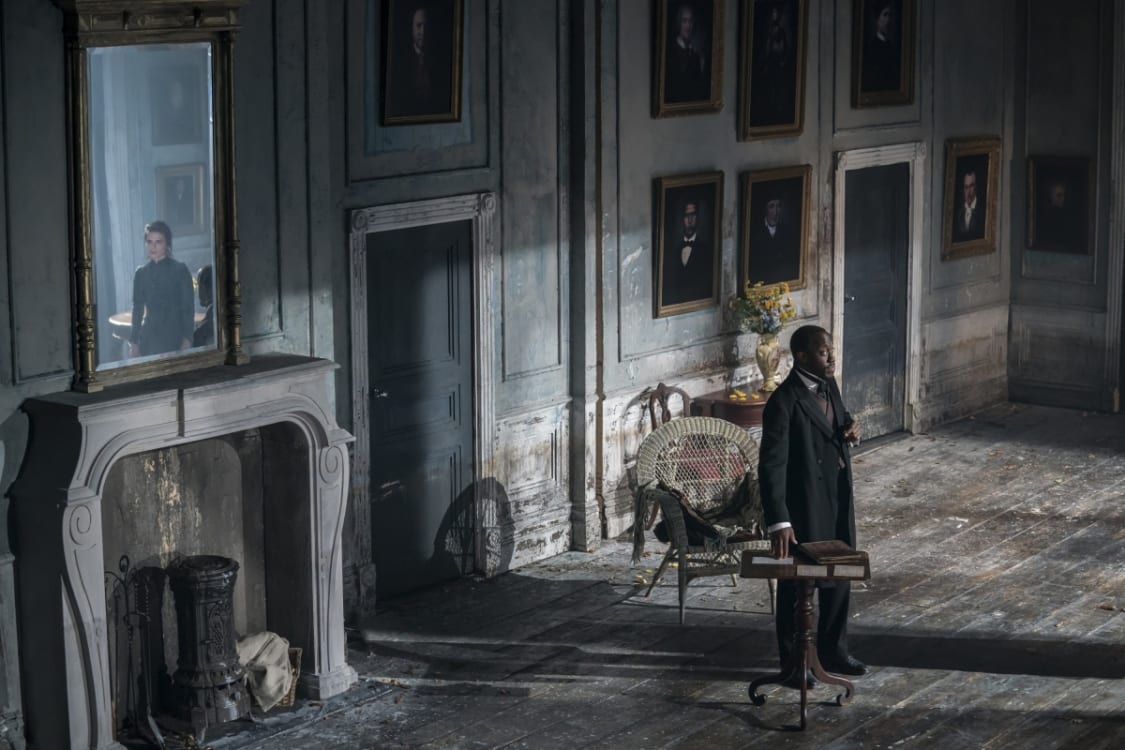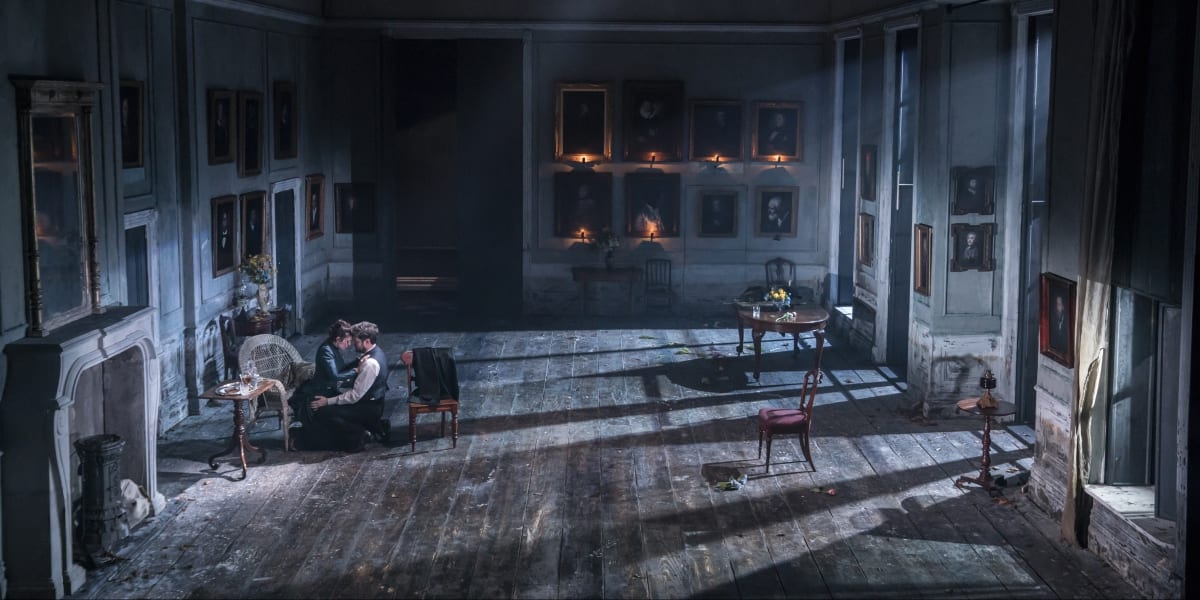This play is a masterpiece that is rarely produced. Duncan Macmillan’s new adaptation of Ibsen’s Rosmersholm and Ian Rickson’s direction of stellar performances by the cast make it a memorable theatrical experience.
At the core of this 1886 chef-d’oeuvre is love, desperation and betrayal against the backdrop of radical ideas that engulf youths and adults alike, causing emotional, social and political turmoil that affect the community. The performance grips without being melodramatic even where some scenes touch the emotional nettle.
For over 200 years the House of Rosmer (Rosmersholm), has been adulated and held up as a pillar of the community for its conservative values on religion and politics. The change appears with the arrival of a young female, Rebecca West. She is in her late twenties, liberated and a radical female motivated by a strong desire to change society and introduce equality. At the Rosmer’s house, not only does she introduce radical ideas, but also transforms the physical space – the dark and rather morbid place is flooded with light and now adorned with bright flowers and garden scents. Hayley Atwell’s Ms West is passionate, impetuous and confident. Mr Rosmer is in his early forties, a former clergyman, who lost his faith. He and Rebecca are kindred spirits and passionately in love. Tom Burke’s Mr Rosmer, has the hallmark of an incredibly caring individual with an air of natural nobility. He is passionate and vulnerable in an endearing way.
The shadow of Mr Rosmer’s wife, Beata, who had committed suicide a year earlier, weighs heavily. An image of a white horse, seen by Mrs Helsethlike, the loyal and devoted housekeeper, lurks like a curse or a demon waiting to revisit those running the house. Lucy Briers gives a masterly performance as the devoted housekeeper and confidant who knows everything going on in the household and provides a stabilising influence.
The demon comes in the form of Beata’s brother, Mr Kroll, brilliantly performed by Giles Terera. His unexpected visit opens a Pandora’s box of many layers. Kroll staunchly embraces the old conservative values and is unable to comprehend why even his immediate family, wife and children, have disowned these views. He cynically exploits his sister’s death to try and bring Mr Rosmer to abandon his newfound ‘radical’ views. He digs in Ms West’s past to find information to blackmail her with and get her to abandon her fight for change. Rebecca is shaken and Mr Rosmer despairs.

Jake Fairbrother as Mortensgaard, the radical editor of the newspaper ‘Searchlight’, gives an unnerving performance. He delivers under the belt punches to Mr Rosmer, settling some old scores, yet is prepared to use him, up to the point of realising Mr Rosmer is of no use to his cause, and unceremoniously ditches him. Peter Wight as a scruffy quixotic Mr Ulrik Brendel, introduces sad humour that mirrors the ultimate dissolution.
The leading actors, in particular, together with Rickson’s excellent direction, Rae Smith’s intelligent and effective design together with Macmillan contemporary adaption of the play, offer an immersive and stimulating experience well beyond the evening at the theatre.

